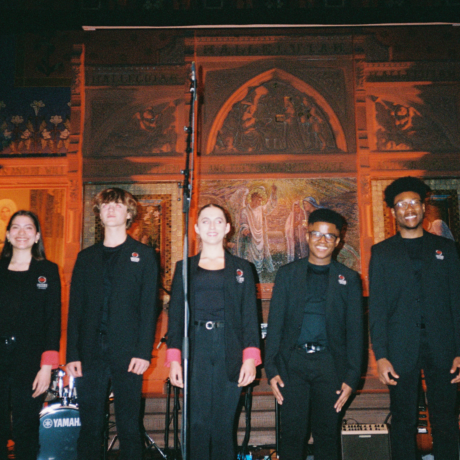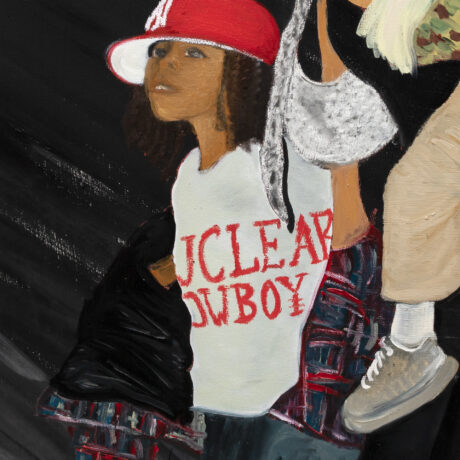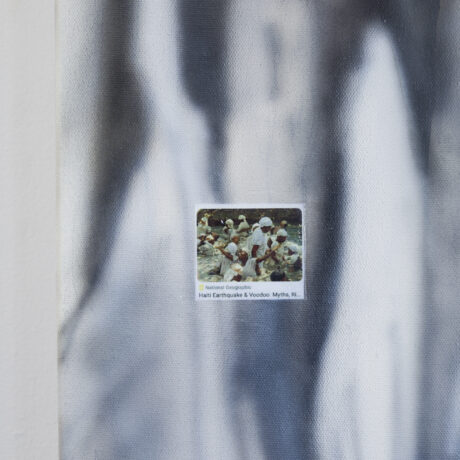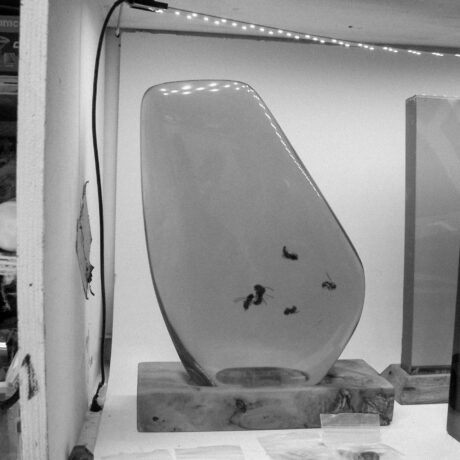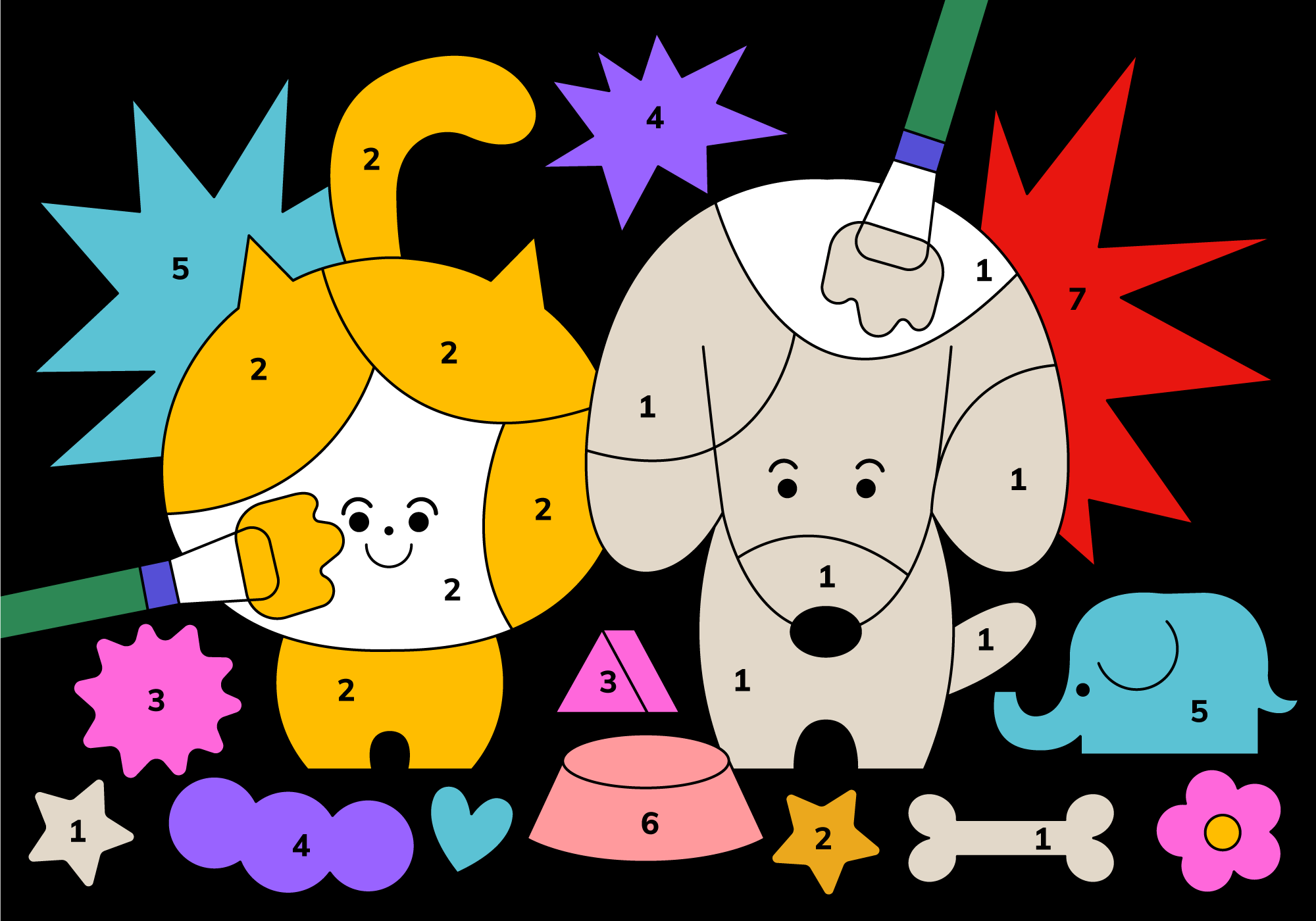
Q: How do you deal with being in the arts and having a day job?
Artists don’t dream about work, they dream about art and ideas and all of the other things they would rather be doing than being exploited for profit. That’s a lie. I have finished shifts and had stress dreams about finding a size 5 pair of Converse for a scary woman on the shop floor. Fully automated luxury communism now, please, I am begging you.
Culture is begging for it, too. Exhibitions continue to be dominated by middle and upper-class trust fund babies who don’t need to find a day job because their days are spent in studios making heartless work. What do you do if you have no energy to squeeze art out of yourself in the evening because you’ve spent all your physical and mental worth on somebody else’s capitalist project? Obviously the answer is revolution but in lieu of that, maybe we can brainwash ourselves that everything in life happens for a reason (it doesn’t and I’m sorry).
I know artists who deal with being in the arts and having a day job by making their art all about their day job, absorbing work as content and material and feeling and politic. They spend so much time at work when they’d rather be in a studio, so the workplace and the studio sometimes blend into one complicated state.
“What do you do if you have no energy to squeeze art out of yourself because you’ve spent all your worth on somebody else’s project?”
This kind of art can sometimes result in quiet, sad imagery or a performance no one ever sees. But it’s got a sadness that I recognise, so it’s the kind of art I appreciate. This artwork has a sensitivity that captures a common state (the long effect of labour) which is something that is hardly ever taken as the subject of art because so many rich artists do not know what it means to work. I hope one day the class of people being exhibited matches up with the audiences attending shows but I will not hold my breath. I’ll just go to the Lowry museum instead.
In terms of practicalities, working while wanting to just be an artist can be easier for some people when that day job is actually in the art industry. It could be culturally compatible, potentially useful professionally, and it’s good to strengthen your network: you might meet collaborators, for instance. It could be an opportunity to learn some things that are relevant to your work, and also expose you to conversations about what art is being produced and how. But yeah, not for everyone.
“Working in the arts doesn’t guarantee any security, joy, progression, fair pay, or energy to make your own stuff after you crawl home from work”
Working in the arts does not necessarily guarantee any security, joy, progression, fair pay, or energy to make your own stuff after you crawl home from work. Those same problems can follow you through to a non-arts day job, of course, but you might prefer that. I know I do. A day job outside of the art world can add another string to your bow, keep you grounded, and implement some good separation between what you love doing and the work you just get on with. People who staff galleries see the rot from the inside and it can leave them forever jaded about the entire worth of the art world.
The concept of a ‘day job’ is a funny one, isn’t it? I get it, but it can sound a bit patronising when for others it is just their job, but for you it’s some open secret and simply a stop-off on your way to better things. People in the arts can be so shifty about work because they think it is more glamorous to not work at all, so they won’t mention the fact that they are a taxi driver as if it’s taboo.
“People in the arts can think it is more glamorous to not work at all, so they won’t mention the fact that they are a taxi driver as if it’s taboo”
I think it is better that we are all transparent normal people who admit the limits of our bank account and moan about paying rent to landlords who don’t fix shit. The last time I spoke to an artist who had done a solo exhibition at Tate, their takeaway pay was somewhere around £5,000 and it’s not like you get to do five solo shows at Tate a year, year-in-year-out, in order to make a living. Everyone has to do other work. This industry simply isn’t welcoming to the working class.
My last piece of advice is this: if you have studied art at one point in your life and enjoyed loopy dedicated time to piss about and make art, and now you’re panicking about all your time disappearing to work instead of artwork, cut yourself some slack and slow down. You don’t have to work at the same pace as you used to when you can’t. Until all my revolutionary dreams come true, we have to work to live. Art will happen when it happens. You won’t forget how to do it.
Culture Therapy: Let Art Solve Your Problems
In the spirit of our revolutionary dreams, I could recommend reading some actual Karl Marx. But honestly, what I really want to recommend is the music video for Dolly Parton’s 9 to 5.
Firstly for the excellent 1980s outfits, but also Dolly didn’t stutter when she said: “It’s a rich man’s game no matter what they call it, and you spend your life putting money in his wallet.” God, I love her.
Illustration by Lucia Pham, an illustrator based in Hanoi
Advice Column
Got an art-world problem? Every month The White Pube set out to help a different Elephant reader…
READ MORE
